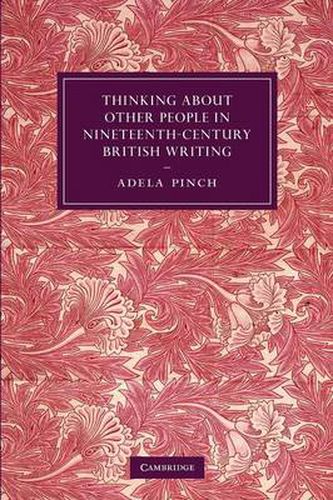Readings Newsletter
Become a Readings Member to make your shopping experience even easier.
Sign in or sign up for free!
You’re not far away from qualifying for FREE standard shipping within Australia
You’ve qualified for FREE standard shipping within Australia
The cart is loading…






Nineteenth-century life and literature are full of strange accounts that describe the act of one person thinking about another as an ethically problematic, sometimes even a dangerously powerful thing to do. In this book, Adela Pinch explains why, when, and under what conditions it is possible, or desirable, to believe that thinking about another person could affect them. She explains why nineteenth-century British writers - poets, novelists, philosophers, psychologists, devotees of the occult - were both attracted to and repulsed by radical or substantial notions of purely mental relations between persons, and why they moralized about the practice of thinking about other people in interesting ways. Working at the intersection of literary studies and philosophy, this book both sheds new light on a neglected aspect of Victorian literature and thought, and explores the consequences of, and the value placed on, this strand of thinking about thinking.
$9.00 standard shipping within Australia
FREE standard shipping within Australia for orders over $100.00
Express & International shipping calculated at checkout
Nineteenth-century life and literature are full of strange accounts that describe the act of one person thinking about another as an ethically problematic, sometimes even a dangerously powerful thing to do. In this book, Adela Pinch explains why, when, and under what conditions it is possible, or desirable, to believe that thinking about another person could affect them. She explains why nineteenth-century British writers - poets, novelists, philosophers, psychologists, devotees of the occult - were both attracted to and repulsed by radical or substantial notions of purely mental relations between persons, and why they moralized about the practice of thinking about other people in interesting ways. Working at the intersection of literary studies and philosophy, this book both sheds new light on a neglected aspect of Victorian literature and thought, and explores the consequences of, and the value placed on, this strand of thinking about thinking.